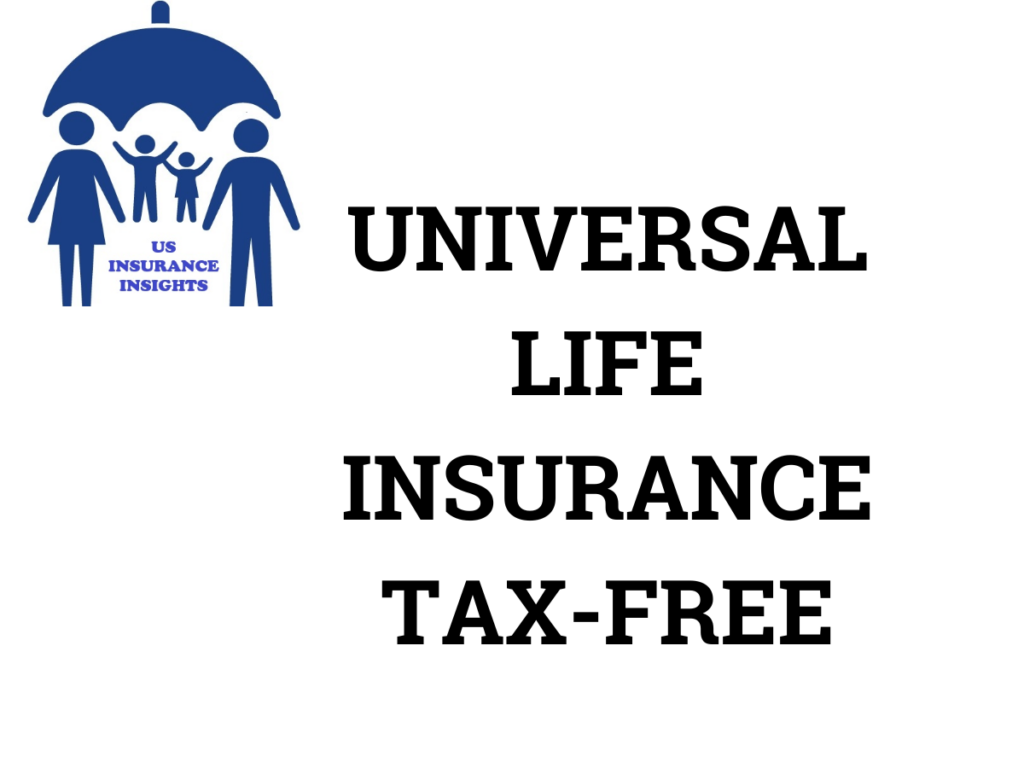Universal life insurance tax-free? Introduction
A major worry when looking ahead is figuring out taxes. Nobody enjoys the feeling of losing saved money because of unpredictable tax costs. That’s where universal life insurance tax-free benefits come in!
When approached with the right strategy, universal life insurance (ULI) can allow you to build wealth, ensure your loved ones are cared for and give your inheritance away tax-free. Just how is it possible? We’ll make things simple so you know how to handle money, save more and make the right decisions for your future.
What Makes Universal Life Insurance Tax-Free?
The main features of universal life insurance that benefit taxes are how the policy is constructed. Tax planning helps you in three main ways to reduce or get rid of taxes.
1. A Death Benefit That Does Not Incur Taxes
- Those you name as beneficiaries will get a one-time payment, the death benefit, when you die. The best thing about it is! Usually, all of this money is tax-free by IRS rules.
- Your family won’t have to give part of their money to the government as tax.
- If your ULI policy is set up properly, no taxes will be required and your loved ones will get every dollar from the policy.
2. Savings that Compound and are Not Taxed
- Having cash value is definitely a special feature of universal life insurance. Whenever you buy an extra premium, some of it is put aside in a savings-like account which will increase over the years.
- You don’t have to pay income taxes on the growth of your cash value in a policy.
- Because of this, it is often recommended for people saving up for the future and retirement.
3. You may be able to take loans and withdraw funds without paying tax.
- If cash is required, universal life insurance permits you to take out loans from your policy which you do not have to pay taxes on.
- Unlike some bank loans, you do not have to pay tax on cash value loans.
- Provided you meet the set requirements, withdrawals do not trigger taxes, so this can be used for emergencies or extra money after you retire.
What Benefits Does Universal Life Insurance Have That Helps You Avoid Taxes?
1. Protection for people under the IRS Tax Code
According to the IRS, life insurance is for financial protection instead of being treated as an investment. This allows universal life insurance tax-free benefits to remain intact.
2. Preventing or reducing your share of Estate Taxes
Having a large estate can result in you paying huge amounts in federal estate taxes. But, if you put your universal life insurance policy in an irrevocable life insurance trust (ILIT), you can shield your estate from taxes so the payout is still tax-free.
3. Taking out Loans as an Alternative to Withdrawing
Pulling cash from your policy through a loan is better than making withdrawals, since you don’t pay capital gains and your policy is still active.
Pros and Cons of Universal Life Insurance Tax-Free Benefits
✅ Pros
Your family can receive the full payout your policy offers and there are no deductions.
- ✔ Less Money Is Taken Out as Taxes – With tax-deferred growth, the cash value can increase without you paying taxes straight away.
- ✔ Loans without tax or penalty – You can borrow your money without being charged extra.
- ✔ Ensuring Your Wealth is Safeguarded – Proper organizing your assets protects your money from significant estate taxes.
❌ Cons
If policy lapse risks worry you, remember that withdrawal limits should be followed or the policy could lapse and have tax consequences.
- 🛑 Rates Apply – Any time you borrow cash from your policy, you will pay interest.
- ✖ The rules are not simple – Misusing the tax benefits might result in IRS penalties.
Step-by-Step Guide to Maximizing Universal Life Insurance Tax-Free Benefits
The first step is to pick the right type of universal life insurance.
A variety of universal life insurance plans provide different benefits for each one:
- Traditional Universal Life – Guarantees steady, interest-free growth for your money.
- Indexed Universal Life (IUL) gives your cash value exposure to the stock market so it can grow and tax-advantages remain.
- In Variable Universal Life (VUL), investments go into mutual funds, giving you the possibility of high returns, but also risk.
As a second step, you can overfund your policy to grow your money without taxes sooner.
Modules help to grow your cash value faster if you pay more in premiums. You end up saving more of your earnings without taxes, within the policy.
In Step 3, use loans instead of taking money out of your account.
Instead of taking out cash from your policy (which could be taxed), try to take a policy loan. Because loans are not income, they are tax-free.
The fourth step is to set up an Irrevocable Life Insurance Trust (ILIT).
- For a bigger estate, placing your policy in an ILIT will protect it from estate taxes. If you set up this way, your beneficiaries can receive the benefit without tax deductions.
- Make an appointment with a financial advisor.
- When hiring a licensed financial planner, you can structure your policy for the most tax advantages and prevent errors from happening.
Real-Life Example of Universal Life Insurance Tax-Free Benefits
- We can consider the couple of John and Lisa as an example.
- As a business owner, John who is 45, hoped to save for his family in a way that wouldn’t be taxed by the government.
- He went with a $1 million Indexed Universal Life Insurance (IUL) policy.
- In 20 years, the cash value in the policy rose and by then it was worth $300,000.
- Starting when he was 65, he began withdrawing part of his policy money to help with his retirement.
- None of the $1 million death benefit was taxed after John died at 80 and it was directly awarded to his family.
- John took steps to set up his policy in a way that it preserved his family’s money and avoided extra taxes.
Common Myths About Universal Life Insurance Tax-Free Benefits
- Many people believe that all life insurance benefits are taxed.
- Most of the time, death benefits are tax-free, except if the policy has been set up improperly.
- Some people believe that all money taken from a universal life policy does not get taxed.
- 🌰 Correct: Loans are the only exception to the rule about taxing financial transactions. Direct withdrawals can have tax consequences.
- The Belief Is: “Just the Richest People Need Universal Action Life Insurance”
- True: Tax-free life insurance can help both young professionals and retirees.
Final Thoughts: Is Universal Life Insurance Tax-Free Worth It?
If you’re looking for a tax-advantaged way to grow your wealth, protect your loved ones, and access money tax-free, then universal life insurance tax-free benefits can be a powerful financial tool.
When you have a proper strategy, your family’s future is protected, your tax bill is reduced and you build lasting financial benefits. Interested in knowing your choices? Take the first step right away and start planning.


1 thought on “Universal Life Insurance Tax-Free: Unlocking Smart Wealth Protection”